

Tao Te Ching
Search Sages
Enter all or part of an sage's name or biography in the fields below, then press tab or enter to filter the list of Authors. Click the headings Name or Biography to sort by that column. Diacritics are ignored when searching.
Click on the author's name to go to their page.
| Author Name | Biography |
|---|---|
| Paul Carus |  Paul Carus Paul CarusThe Teachings of Lao Tzu Self-described as “an atheist who loved God,” Paul Carus was one of the first Americans with a serious interest in Buddhism. He saw Taoism and Buddhism as complementary and published 75 books and 1500 articles on social issues, history, science, religion, politics, logic, anthropology and mathematics. He worked closely with D. T. Suzuki and corresponded with thought-leaders of his time like Tolstoy Thomas Edison, Nikola Tesla, and Booker T. Washington. He defined his philosophy as, “everything is fraught with life; it contains life; it has the ability to live” and promoted a “Religion of Science,” interfaith dialog, and a “cosmic religion of universal truth.” |
| Paul Berman | 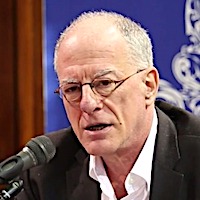 Paul Berman Paul BermanInsightful political commentator and expert on totalitarianism |
| Paul Avrich | 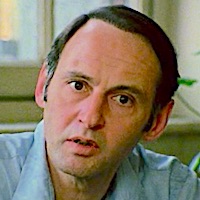 Paul Avrich Paul Avrich (1931–2006) |
| Patricia Buckley Ebrey |  Patricia Buckley Ebrey Patricia Buckley Ebrey |
| Parshvanatha | 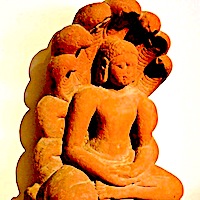 Parshvanatha ParshvanathaEarliest historical Jain saint 23rd described and earliest historical Jain tirthankaras (savior/saint teachers), Parshvanatha—like the Buddha—was born to a king and queen but renounced the world’s fame and fortune in favor of a life dedicated to spiritual discovery. His realizations and teachings became not only a major influence on the Jain tradition; but also, Indian philosophy in general. The core of his teachings emphasized understanding the cause-and-effect principles of karma and samsara while practicing non-violence and asceticism. His statures usually have a serpent hood over his head or snakes sprouting out of his shoulders. According to Joseph Campbell, snakes in this context are a symbol for life and represent letting go of habitual patterns, beliefs, and prejudice like a snake discards its skin. |
| Parmenides | 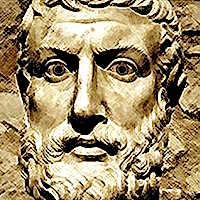 Parmenides ParmenidesGrandfather of Western philosophy Parmenides of Elea Παρμενίδης ὁ Ἐλεάτης (c. 540 - 450 BCE) |
| Paracelsus | 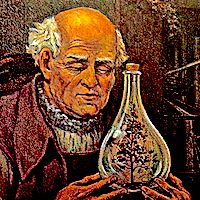 Paracelsus ParacelsusRevolutionary, shamanistic alchemist “Father of toxicology,” alchemist, medical revolution pioneer, and astrologer; Paracelsus was venerated by the Rosicrucians, intensively studied by Carl Jung, and revered by future physicians who universally recognize his medical contributions. He criticized the popular purging and bloodletting techniques of his time as well as the practices of applying cow dung to wounds. He revolutionized medicine by conceiving clinical diagnosis, promoting the keeping of wounds clean, anticipating Germ Theory, using specific instead of cure-all medicines, doing medical experiments on animals, treating mentally ill as treatable instead of possessed by evil spirits, discovering that syphilis is contracted by contact, that “poor blood” can be improved with iron, and creating the terms "chemistry," "gas," and "alcohol.” Jung carried on his work of alchemy as symbolic language expressing unconscious and innate psychological influences. |
| Papa Henry Auwae | 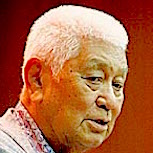 Papa Henry Auwae Papa Henry AuwaeAlthough learning herbal knowledge from his from his 107-year-old great-great-grandmother and understanding the use of over 2,500 herbs, how to harvest and ways to use them; Papa Henry Auwae – deeply steeped in Hawaiian culture and spirituality – taught that all true healing is 80 percent spiritual and must treat the whole person. Growing up in Hawaiian schools where he was punished for speaking Hawaiian, he graduated from the University of Hawaii, became a healer for over 40 years treating everything from AIDS to broken bones but refused to take money for his services. |
| Padmasambhava | 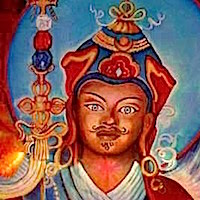 Padmasambhava PadmasambhavaKnown as “The Second Buddha” and founder of Tibetan Buddhism the first Buddhist monastery in Tibet, and the Nyingma school; Padmasambhava came to Tibet at the request of King Trisong Detsen. Venerated also in northern India, Bhutan, and Nepal; Padmasambhava became famous for subduing “demonic forces” that prevented Buddhist teaching from becoming rooted in Tibet. Rather than conquering these negative influences, he took the tantric approach of transforming the demons into protectors. His name and symbolism comprise one of the most common and popular mantra-prayers in Tibetan Buddhism and is believed to communicate and inspire sacred teachings of transformation. |
| Ovid | 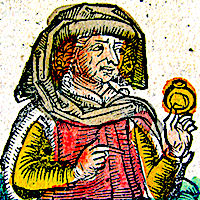 Ovid OvidGreat poet and major influence on the Renaissance, Humanism, and world literature Roman poet, inspiration for Renaissance humanism, consummate love elegist, and a tremendous influence on both Western literature and art; Ovid was staggeringly popular during his own time, during the Middle Ages, during the Renaissance, and still in our own time today. Fashioning himself as a love doctor, he wrote a 3-volume treatise called The Art of Love complete with instructional images and poetry about oral sex pleasure. It begins with teaching men how to best find a lover, seduce them, and later hide affairs. It continues with advice for women on how to avoid the traps and deceptions he has taught men. This also became immensely popular but his popularity didn’t serve him well politically. Emperor Augustus exiled him to a remote, harsh location where his friends avoided him and he remained until he died 9 years later. |
| Ouspensky | 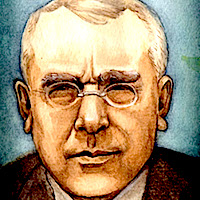 Ouspensky OuspenskyClose student, popularizer and critic of Gurdjieff; Ouspensky explained ways to discover the sense beneath the words (“the actual meaning of the thing itself") with a psychological method he described as "a calibration of the tools of human understanding.” Though not religious, he kept one prayer—to at least not during his lifetime become famous. That prayer was granted but he still had a deep impact on many famous people like T. S. Eliot, Aldous Huxley, and many influential writers, psychologists, and journalists. Championing "the esoteric method,” he evolved a philosophy that expanded beyond the Aristotelian logic of A = A to include a more Taoist/Buddhist understanding that A = A and A = not-A. The Buddhist influence extended to his version of mindfulness practice which he described as “being aware of being aware.” His books and influence helped launch what today is called Secular Buddhism but also many New Age versions of spiritual materialism. |
| Oscar Wilde | 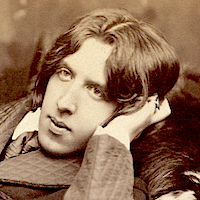 Oscar Wilde Oscar WildeOscar Wilde (1854 - 1900) |
| Ortega y Gassett, José | 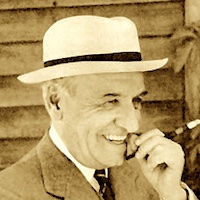 Ortega y Gassett, José Ortega y Gassett, José Spanish philosopher, historian, and essayist A professor of Philosophy, Ethics and Logic during his early life, he later began publishing newspaper essays which quickly made him internationally famous. He then branched out into politics supporting socialist candidates but because discouraged by the support for Franko who he strongly opposed. He also opposed the the Spanish Conservative Party, the Spanish monarchy and the Catholic Church but historians still consider him anti-democratic and conservative — a not surprising dichotomy about someone so against rigid belief systems and conformity, someone dedicated to his dictim, "I am me and my circumstance." |
| Orpheus | 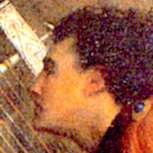 Orpheus Orpheus"Greatest poet and musician of all time" Accepted by most ancient sources as a real person but also shrouded in myth and legend, Greeks venerated Orpheus as the greatest poet and musician of all time believing his music could charm animals, divert rivers, and even make rocks and trees dance. As prophet, musical archetype, and founder of the Orphic mysteries; his influence on art, poetry, film, opera, music, and painting continues into modern times. As well as influencing Stoic pantheism and the Neo-Platonists’ asceticism; he continued a mystic cult migrated from Egyptian Osiris that included the suffering, death, and resurrection of a divine son; judgments at death of heaven, hell, or purgatory; “original sin,” and a communion sacrament of eating a god’s body and blood; it became a basis for the Christianity flourishing today. |
| Orghina Khatun | 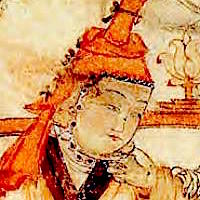 Orghina Khatun Orghina KhatunOrghina Khatun ( - 1261) |
| Oren Lyons |  Oren Lyons Oren LyonsSeneca and Iroquois Nations Council of Chiefs Faithkeeper, legendary athlete inducted into the Lacrosse Hall of Fame, artist, author, and international peace keeper; Oren Lyons’ life work expanded from promoting his own tribes’ welfare to indigenous lifeways and Native American Rights in general to human rights and economic development for indigenous people all over the world including working for Maori rights in New Zealand, yearly meetings in Geneva for the UN Human Rights Commission, and UNESCO’s World Conference Against Racism. A strong voice for the environment, sustainable development, a more sane world, and for the sacred over materialism; he represents native peoples in many forums throughout the world. |
| Omar Khayyám | 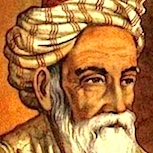 Omar Khayyám Omar KhayyámPersian Astronomer-Poet, prophet of the here and now In the west most famous for his poems but Omar Khayyam was also a political advisor, “philosopher of the world,” one of the most influential scientists of his era, “one of the greatest mathematicians of medieval times,” and “without equal in astronomy and philosophy.” A prophet of the here and now, mystical Sufi teacher and free-thinker who rejected theology; he reformed the Persian calendar to a form more accurate than our own today, wrote the most important until modern times book on algebra as well as many others on astronomy, geography, and mechanics. His poems—known as the Rubáiyát—not only rejected Islamic belief and Christian morality, but the nature of religion itself. |
| Oliver Wendell Holmes Jr. | 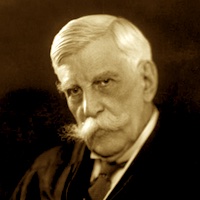 Oliver Wendell Holmes Jr. Oliver Wendell Holmes Jr.Game-changing Supreme Court Justice One of America’s most respected and influential judges of all time, Holmes still holds the record for the oldest Supreme Court Justice. His family was close friends with Henry James Sr. and Ralph Waldo Emerson; he became close friends with William James and Henry James Jr. His often-cited, penetrating comments supported civil liberty, freedom of speech, and progressive, democratic ideals. His legal opinions formed the foundation for Roosevelt’s New Deal. His book, The Common Law (still in print after more than 140 years), remains a source for heated debates. Opposing attitudes based on opinions about any kind of absolute truth, it describes law as an evolving process based on the changing attitudes and insights of society. |
| Odysseus | 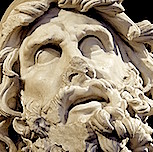 Odysseus OdysseusTrickster lineage hero and symbol Cultural hero to the Greeks and respected for his cunning and strategy, Odysseus was reviled by the Romans as deceitful and without honor for not maintaining strict adherence to rules and ‘duty.’ Christians dismissed him and Dante relegated him to the lowest level of hell. He became a legendary Greek king and hero of Homer’s The Odyssey and a powerful symbol in the Trickster lineage. Stories of his successful guile, his brilliant solutions to problems, his courageous willingness to—for a good cause—go beyond conventions, norms, and chauvinistic beliefs for the greater good. Representing cultural themes long before Homer personified the Odysseus archetype, this imagery continues in the modern world in works by Tennyson, Kazantzakis, James Joyce, Virginia Woolf, Margaret Atwood, Susanne Vega, and the Coen brothers. |
| Octavio Paz | 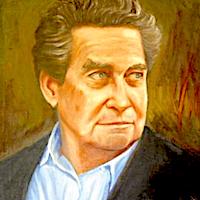 Octavio Paz Octavio PazPersuasive poet and convincing social commentator Poet, diplomat, penetrating social commentator, one of the most important 20th century writers, and one of the greatest Hispanic poets; Octavio Paz dissolved his cultural prejudices and became a true world citizen. After traveling extensively in Asia, Europe, and the USA, he became Mexico’s ambassador to India. He criticized his countrymen as “instinctive nihilists who hide behind masks of solitude and ceremoniousness" and resigned from his Mexican diplomatic service when the government massacred students in 1968. Famous for his remarkable poetry that won a Nobel Prize for Literature, he balanced this kind of writing with influential political commentaries in popular magazines he founded. |